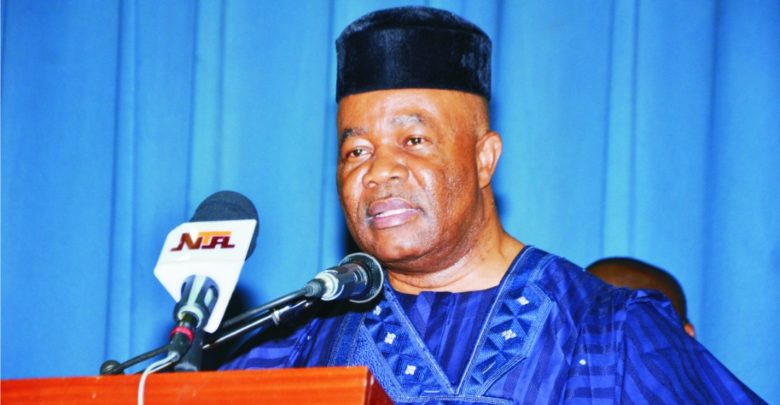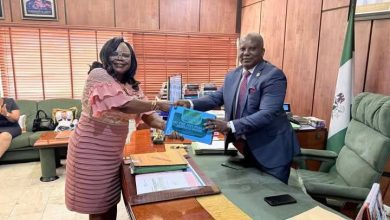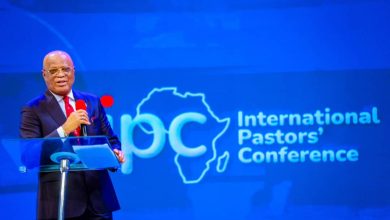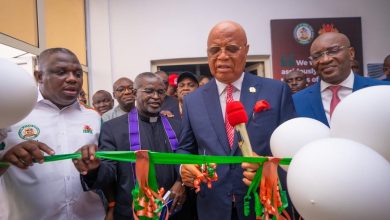
“It is we the people of the Niger Delta region that are under-developing our own area and not the government because if we had used what had been provided for us judiciously, we would have achieved a lot.”
– Niger Delta Peoples Congress, 2019
By Substance Udo-Nature
There can be no pretensions to the fact that not a few who have had one thing or the other to do with the Niger Delta Development Commission (NDDC) – and soiled their hands or failed or ran away – in the past few years were unsettled by the news that the Commission will soon be audited. That could have been the source of the theory that the planned audit was because of bad blood politics than a necessity to save a bleeding commission from terminal anaemia.
That word “audit”, like mention of a terrible lethal disease like HIV-Aids or Ebola, does not always sound pleasant among Nigerians in government, especially those who, as we used to say, have long hands, long and pliable enough to dig into the deepest and shallowest corners of the common purse either by advantage of office or some measure of what Nigerians would commonly describe as smartness or grace of God.
Receiving governors of the littoral states and others, led by Bayelsa’s Seriake Dickson, Thursday, October 17, 2019, in Abuja, President Buhari led all romours to that effect to rest when he announced to his aristocratic visitors that, “What is presently on ground in the South-South region does not reflect the huge resources that have been allocated to the organization” and therefore went further to seal his approval for forensic audit of the NDDC from 2001 to 2019.
Long before President Buhari’s prescriptive and irrevocable pronouncement, the matter had earlier made more noise when the incumbent Minister of the Niger Delta Ministry, Sen. Godwill Akpabio, had hinted on that possibility, although, as it was later discovered, he was grossly quoted out of context and intention.
Recall that Sen. Akpabio, during a meeting with the Management of the NDDC on the crest of his appointment had expressed un-political dismay that although the Commission, in the fairest assessment, has performed below average since its establishment in 2000, it was unbelievable and unacceptable that, from available record, it was indebted to the tune of over 2trillion naira.
Perhaps relying on some convincing evidence, the infuriated minister who is not strange to the anger to transform things, minced no words in quickly tracing the cumulative huge debt to some real, inflated or imaginary contracts and other ‘mago-mago’ the hierarchy of the Commission must have awarded over the years, which as a nemesis have turned to haunt its operational efficiency in the present. It should have been obvious that Akpabio, being a red-cap strategist and charismatic change-agent extraordinaire, did not want to pour new wine into an old wineskin, else become part of a past he knew nothing about.
Seeing the NDDC as a child of circumstance, the minister therefore gave hints that there would be a forensic audit of funds received and spent by the Commission since 2000. Although what otherwise would have been seen as a stern verdict on the NDDC was tempered with diplomatic paradox and innuendoes by Akpabio, it could not have been taken as impulsive. Here him: “I believe that the NDDC has not performed well. I don’t want to say that you have failed the region; but I am saying that you have not performed well”, he was quoted as saying.
The minister swiftly went into a breakdown of some overt anomalies when he said: “The real youths of the Niger Delta who undertook clearance of water hyacinths have not been paid; those that were paid were political youths. People that you owe just N500, 000 to N1million are over 400 and they have been going to the NDDC for over 10 years and the money has not been given them, I know as for now in terms of debt the NDDC is owing over N2trillion; some of them are real, some are imagined…We will do forensic analysis and audit. We will try to go backwards even from the year 2000 up till now to know what came and what went out and why we have not seen much on ground”.
Akpabio had also observed that the Commission is presently grappling with a frigthaning cataloque of about 12,000 ongoing and abandoned projects, yet is ostentatiously operating from a rented apartment that gulps millions by the minutes. Of course, Sen. Akpabio’s position was both an expatiation and corroboration of his then junior minister, Festus Keyamo’s observation that the NDDC has failed. We can only begin to gauge the temperament of the NDDC Management team, led by the Director overseeing the Commission, Akwagaga Enyia, against a judgement that can rightly be seen as fairly adverse.
Again, in March 16, 2017, during an interactive session with the National Mentoring Benefactors and some Members from the Niger Delta region, in Abuja, the immediate past Minister of Niger Delta Affairs, Mr. Uguru Usani, had promised to undertake Technical Audit and Status Verification of all projects that have been awarded and executed by the NDDC. Something serious must have prompted that. If that verification had been done and Akpabio’s latest analysis of the present was hinged on the report, then there should be no need for more questions on the neccesity for the probe.
But this is not the only time the NDDC Management was excoriated. Before the appointment of Akpabio and Kayamo into the ministry, the Vice President, Prof. Yemi Osinbajo, had also bravely skinned the Commission for underperformance that does not justify the huge investment in the battered body.
On Friday, July 12, 2019, during a courtesy call on the Ebenanaowei of Ogulagha Kingdom, His Royal Majesty, Captain Joseph Timiyan 1, at Obotobo in Burutu Local Government Area of Delta State, the Vice President lamented that despite the huge resources that government have invested in the NDDC, Ministry of Niger Delta and other interventionist agencies, there was far too little or nothing to show in return. In the VP’s words of regret, “The NDDC in many respects has not met the expectations of the oil producing state; a lot of money is invested in the NDDC and the Ministry of Niger Delta because the main reason they were crafted is to speed up development of the oil-rich communities”.
In a recent interview with the pioneer chairman of the NDDC, the unsung progenitor of the NDDC Master Plan and the a critical factor in the advocacy and success of the Amnesty Programme for Militants, Ambassador Sam Edem, he responded with mixed feelings on the performance indices of the NDDC. His was that although there was room for improvement to catch up with the huge expectations, the Commission is not only moving at a snail speed but has tilted off its original vision, model, and enthusiasm in terms of policy formation and implementation; a far cry from the initial zeal and testimonial achievements recorded in its earliest days when he piloted affairs.
Like any other sector of the Nigerian economy, the unaffected observations by experts and stakeholders that so much has been given to the NDDC yet without justifiable landmarks simply points to the free launch cafeteria it may have become. On the other hand, some have blamed government for sometimes using appointments into the Commission as gratification for political loyalists and cronies or war chest for political ambitions.
To others, it would appear that the federal government, apart from its financial obligations to the Commission, has not shown enough interest and supervision on how the place is run. This assertion seems to lend credence to why only a few principal staff of the NDDC may have vacated office with honour, without specious allegations of impropriety that are usually swept under the carpet, depending on who was involved.
Will there be any convincing change in trends with the current hullabaloo? How committed and brave will government be this time around with what some are already dismissing as mere script or wire-twine to strangle or checkmate political dissidents and prodigals? Or how true is that?
Nevertheless, many have openly lent their support and commended the president for the audit of the NDDC. In a communiqué signed by convener of the defunct Niger Delta Peoples Congress, NDPC, Chief Mike Loyibo, on behalf of the leaders, he stated with great expectations and solidarity that it was time “the mess in NDDC be cleared for effective mandate delivery for the incoming NDDC Board…The NDDC has been a cash cow over the years and we the people of the region have been crying for such opportunity to reposition the commission to enable it achieve its primary goals”.
The insinuations by some in the echelon of NDDC that governors of the Niger Delta were behind the audit therefore do not seem to hold water even as governors of the region, Monday, in a meeting with President Buhari refutted the allegation. The President had stated that the probe was motivated by public complaints.
While there are palpable fears that heads are bound to roll, there are also some cautious concerns about how transparent the process shall be, sincerely and boldly devoid of politics, that might target the innocent and political enemies as scapegoats. One of the best ways to convince the masses of the exercise may be for government to publish the audit report when it is time and act upon it. No selective justice or the endemic scenario of the more you look the less you see.
Above all, the Presidency will score higher if it could shield the NDDC from politics of the masters and cabals.
The Niger Delta Narrative And The Politics Of Calabar-Itu Road
Envisioned, initiated and completed by the administration of late Jacob Udoakaha Jacob Esuene in the early1970s while he was the governor of Old Cross River State, the Calabar-Itu-Ikot Ekpene Road had been the only road linking what was then the hinterland area of the State, which is Akwa Ibom State today, with Calabar, the State Capital.
The idea of the road and the ultimate realization of that dream had brought immeasurable relief to years of yearning by the primary beneficiaries, who before then had had no option to going to Calabar through the Oron River, with its attendant risks and casualties which came as often as it was unavoidable. The road therefore became one of the many landmarks of Esuene’s visionary and altruistic leadership that time will continue to remember him for.
The importance of the Calabar-Itu Road was not only its opening up Calabar and her vicinities like never before, as the first Capital of Nigeria, but also exposed her to the rich but largely untapped natural endowments of solid and mineral resources, antiquities, lively and hospitable people, evolving culture as well as her tourist attractions and enormous potentials. Even as it stands till today, the about 120 kilometer road from Ikot Ekpene through Itu down to Odukpani and finally into the Paradise City is still the only road, apart from the Akamkpa-Ikom-Ogoja axis to the east, that connects Akwa Ibom with Cross River State.
Expertly constructed by Fougerole, it is even more to the credit of Esuene’s uncompromising taste for quality that the road has served for more than two decades before it progressively began going from bad to worse in the last fifteen or so years under the careless watch of successive administrations of the country. Presently, the road can variously be described as deplorable, deteriorating, a deathtrap –and even impassable. A journey from Uyo that at the longest usually takes one and half hours now takes half of the day, with great possibility for some to spend nights day. Not to be forgotten is the high incidence of fatal accidents and loss to property.
From 1999, or even earlier than that, the road has enjoyed hyped and glamorous mention in almost all federal budgets; a tantalizing bait from politicians to the electorate, especially when election was around the corner. But just after such elections were over, when the desperate and crafty winners had rode to victory on the bent backs of the electorate, music changed tunes and the road and people return to worse conditions.
There was therefore a glimpse of hope when in 2015, with his Change Mantra, President Buhari speciously first captured the road in that year’s budget. However, in 2016, the same road became object of remonstration, claims and counter-claims, when it was observed to have been allegedly removed from the national budget when the infamous “budget padding” syndrome infected the National Assembly.
Perhaps to cover up what after all cannot be covered up, the road graciously appeared again in the 2017 budget. Giving insight into government’s plans, then Minister for Works, Mr. Babatunde Fashola, was quoted as telling journalists following one of the post-Federal Executive Meetings of that year: “What is expected of the Federal Government is a complete reconstruction of Calabar-Itu Road to a 4-lane expressway similar to the East West Road and not merely patching and resurfacing of the existing 2-lane road constructed in the 1970’s. And by this time next year, the stories on the road will change”. That, precisely, was on Wednesday, May 4, 2017.
To remember that hopes were high following that official pronouncement cannot be a hyperbole. But from the day of Fashola’s panegyric declaration to 2018 and into the eve of the 2019 elections, nothing tangible was done on that road except the cycle of sorrows and complaints from residents and regular users. Nevertheless, as the 2019 elections began in earnest, or in the thick of it, the then Senior Adviser to the President on National Assembly Matters (Senate), Sen. Ita Enang, put up what various commentators saw as a theatrical farce, that not a few believed, was clearly targeted at wooing the electorate.
It was on that occasion, July 2018, that Enang, said to represent the President, led a team of Julius Berger engineers to the Calabar-Itu Road for what he called “inspection of ongoing construction of the road”. Others on his team were the South/East Regional Manager of Julius Berger, Mr. Juergen Fischer, a representative of the Federal Ministry of Works, Engr. Amos Duke, etc.
There, Sen. Enang was widely quoted in conventional and social media platforms as having said: “We are here at Calabar–Itu-Ikot Ekpene Federal Highway where the Federal Government awarded contracts to Julius Berger Nigeria Construction for the dualization of the road. So, I came here on behalf of the Federal Government to look at the extent of work that is going on. I am impressed by the extent of work done. This is the 12km Akwa Ibom section of the project….We all came to see the extent they have gone because we have money in the budget this year for this road.” Later that same day, featuring on a post-inspection radio interview on Inspiration FM, Uyo, Senator Enang reaffirmed his observations, with praises of the federal government’s commitment to completing the road.
Even Julius Berger read the script well. Engr. Juergen Fischer had also told newsmen on that occasion, “We’ve started from Akwa Ibom side – the site installation and mobilization is ongoing. Very soon, we would start with the Calabar side where we have two bridges; our structural engineers would be here next week. We’ve worked on fixing the failed sections too”.
Nonetheless, what only looked like a semblance of intention of the company on that road was a small cleared portion in Ikot Ukap Itam that indigenes of the area said was likely to be Julius Berger’s site, but at that moment there was no single machine.
Interestingly, as duty demanded, a group of curious journalists had sought to convince themselves of the veracity of Ita Enang’s claims. They took a ride a day after from the Ikot Ekpene axis of the road down to Calabar. They returned with the unanimous verdict that nothing was happening on that, except a make-belief exfoliation of topsoil between the Ididep Junction and Ekim Junction. Sooner, that suppossedly cleared portion became a gully rapidly being eaten up by erosion; now encroaching and posing greater danger to that area of the road.
It was obvious that the pre-election antics had their targets -and got their targets. With the 2019 elections won and lost, the true and ever deplorable condition of the Calabar-Itu Road appears to be too hard to be easily glossed with cosmetics and rhetoric of self-preserving politics. Because the pains have been so devastating and overt of recent, with commuters sleeping for days on the road and some being crushed to premature death by falling trucks, some grandmasters of boomerang politics appear to be fed up with playing the Ostrich.
From both State and National Assemblies, the shouts have been daring, vociferous and specific: It was time this long abandoned, politicized but important road be fixed up to lighten the accumulated pains and losses on the people. Yet, the people are far from being convinced that the recurrent ado mean a thing. Haplessly caught up in the ugly and undeniable reality, Sen. Ita Enang, in what could be seen as a practiced oscillation, recently said something to the effect that Julius Berger that was supposed to be handling the construction had backed out of the bargain because the National Assembly slashed the ratified contract sum. So what are we saying?
The daily gridlock on the Calabar-Itu Road right from the nearest point of Ikot Akpan Itam, where a long neglected valley is fast eating up, can best be experienced than be read in newspapers. And this has been a commonplace every year in the last one and half decades. The prevalent feeling among many is that Enang who long before his most recent appointment had arrogated to himself the overlapping duty of a liaison officer to the President on this road, has not been frank and objective in his frequent tailored reports to his superiors and colleagues in Abuja.
The expectation is that for that road to be fixed, wielders of power must eschew politics and do the needful for the downtrodden people of the area as well as travelers on the road. Most importantly, construction of this road is part of the development of the Niger Delta that is the unassailable highest contributor to national coffers. This is not the first time so much unofficial and official noise would be made on this road.
The dominant fear, in the opinion of many, is that if the approaching dry season comes and goes and nothing was done on this road beyond the usual temporary patching, then the Buhari-led APC administration shall have cunningly failed the Niger Delta on this particular aspect, even as many other critical roads in the Niger Delta are begging for urgent and genuine attention. The people are waiting. They are watching. They are listening.




